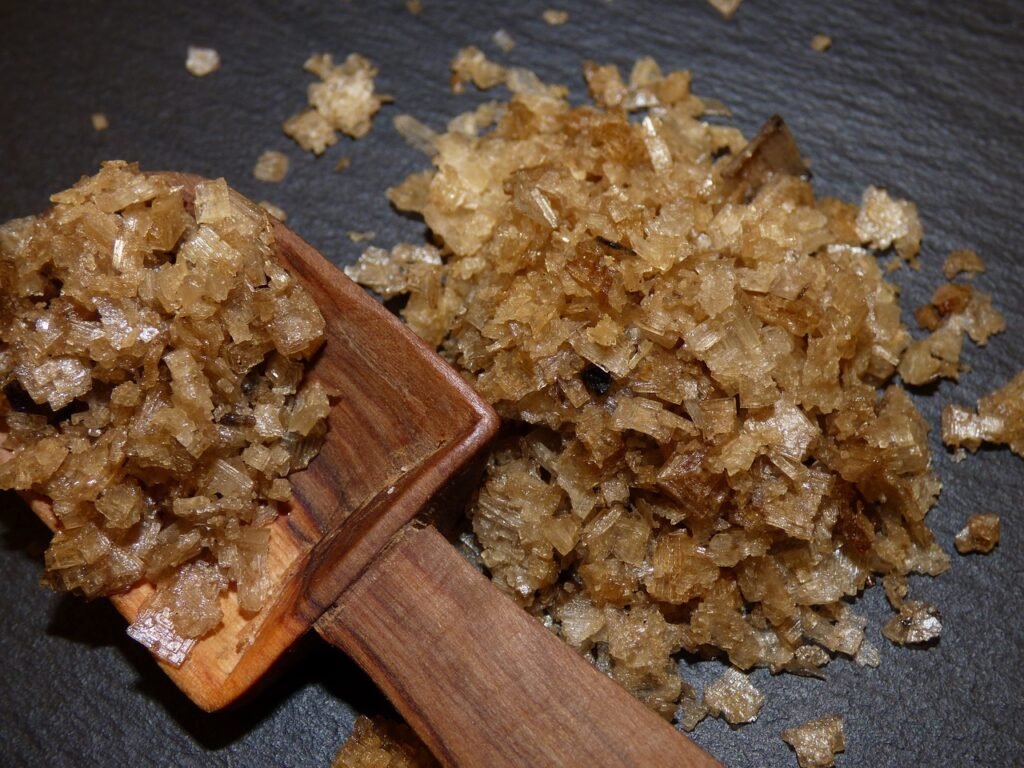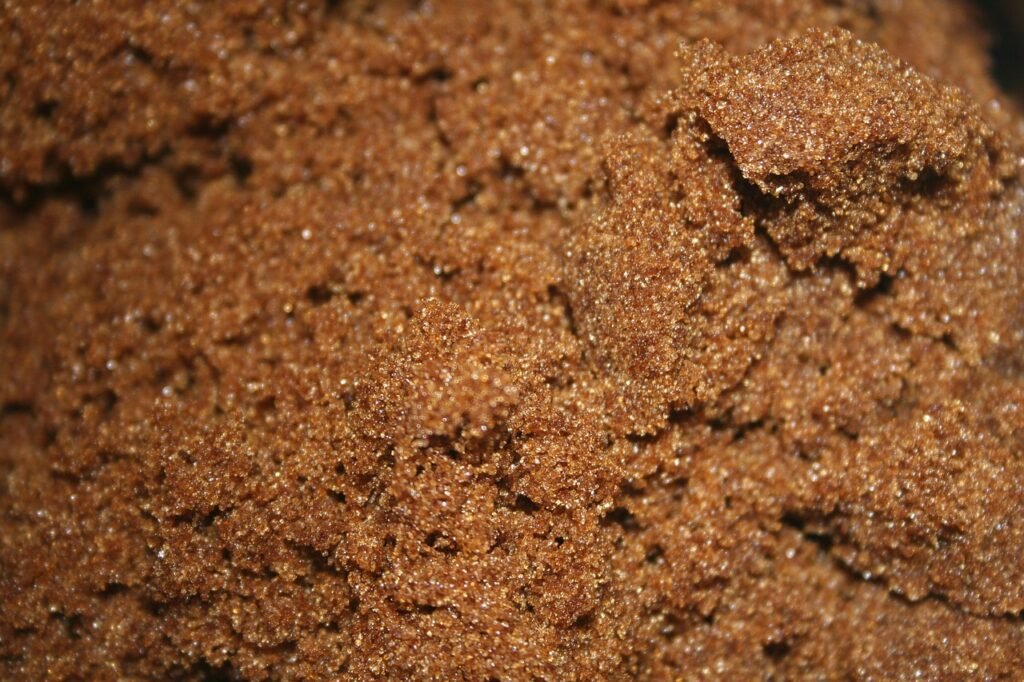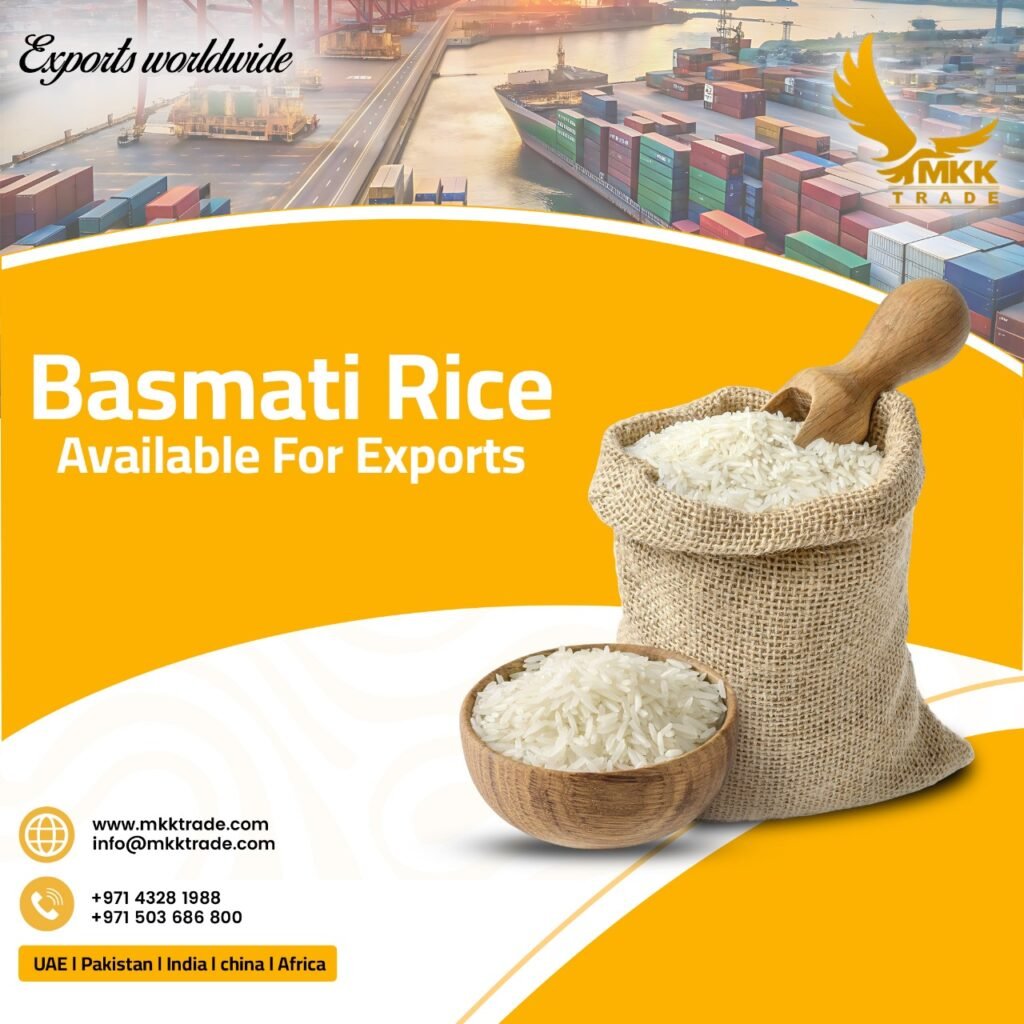Brown Sugar Exporter UAE
Light Brown Sugar Exporter UAE
Dark Brown Sugar Exporter UAE
Raw Brown Sugar Exporter UAE
Brown Sugar Blends Exporter UAE
Relevance of Brown Sugar
Brown sugar holds significant relevance across various sectors, including food production, health, cosmetics, and even agriculture. While it is often seen as a less refined version of white sugar, its unique characteristics make it a popular choice for a wide range of applications. Here’s a look at its relevance in today’s market:
1. Culinary Significance
Brown sugar's relevance in the culinary world is undeniable. It is an essential ingredient in both home kitchens and large-scale food production, used for its unique flavor and moisture-retaining properties. The molasses content in brown sugar provides a deeper, richer taste compared to white sugar, making it an ideal choice for:
Baking: Brown sugar is key to producing soft and chewy baked goods like cookies, cakes, and pies, enhancing both texture and flavor.
Sauces and Marinades: Its rich, caramel-like flavor adds complexity to sauces such as barbecue and teriyaki, as well as marinades for meats.
Beverages: Brown sugar is often used in drinks such as coffee, tea, and cocktails for its smooth, mellow sweetness.
As demand for more natural ingredients increases, brown sugar has gained popularity for its perceived health benefits, even though it is still a sugar and should be consumed in moderation.
2. Health Perception
While brown sugar does not significantly differ in nutritional content from white sugar, it is often considered a healthier alternative. This perception stems from the fact that brown sugar retains trace amounts of minerals such as calcium, potassium, iron, and magnesium due to the presence of molasses. These minerals are lost during the refining process of white sugar. However, the nutritional value is minimal and does not significantly contribute to health.
Despite this, brown sugar is still perceived as a "natural" product, especially among health-conscious consumers who are looking for less processed alternatives. As part of the growing trend towards clean eating and minimally processed foods, brown sugar’s relevance has surged, especially in natural or organic food markets.
3. Demand for Natural Sweeteners
With rising awareness of the negative health impacts of refined sugars, there has been a shift towards natural sweeteners. Brown sugar fits into this trend because it is less processed and retains more of its natural molasses compared to its white counterpart. Consumers who are looking for alternatives to refined sugars often choose brown sugar, thinking it to be a more wholesome option.
Additionally, brown sugar is being incorporated into health-conscious products, including organic snacks, cereals, and baked goods. As the demand for healthier food options continues to grow, brown sugar’s relevance in the food industry is expected to remain strong.
4. Sustainability and Eco-Conscious Trends
Brown sugar is often seen as more environmentally friendly compared to heavily processed white sugar. Since it undergoes less refining, brown sugar is viewed as more sustainable by those seeking products that align with eco-conscious practices. Companies that produce brown sugar often emphasize sustainable farming practices and ethical sourcing of sugarcane or sugar beet, which adds to its relevance in today’s market, where sustainability is a key concern for many consumers.
Brown Sugar Exporter UAE Brown Sugar Exporter UAE Brown Sugar Exporter UAE Brown Sugar Exporter UAE Brown Sugar Exporter UAE Brown Sugar Exporter UAE Brown Sugar Exporter UAE Brown Sugar Exporter UAE Brown Sugar Exporter UAE Brown Sugar Exporter UAE Brown Sugar Exporter UAE Brown Sugar Exporter UAE Brown Sugar Exporter UAE Brown Sugar Exporter UAE Brown Sugar Exporter UAE Brown Sugar Exporter UAE Brown Sugar Exporter UAE Brown Sugar Exporter UAE Brown Sugar Exporter UAE Brown Sugar Exporter UAE Brown Sugar Exporter UAE Brown Sugar Exporter UAE Brown Sugar Exporter UAE Brown Sugar Exporter UAE Brown Sugar Exporter UAE Brown Sugar Exporter UAE Brown Sugar Exporter UAE
Some manufacturers, like MKK Trade, promote their brown sugar as part of a broader sustainability strategy, including eco-friendly packaging and responsible sourcing. This commitment makes brown sugar relevant to both consumers and businesses that prioritize sustainability.
5. Cosmetic and Beauty Industry
Brown sugar has gained traction in the cosmetic industry, where it is used for its exfoliating properties. Its slightly abrasive texture makes it an ideal ingredient for body scrubs, facial exfoliants, and other skincare products. The presence of molasses in brown sugar also offers skin-nourishing benefits, as it is rich in antioxidants and minerals.
As the demand for natural skincare products rises, brown sugar’s relevance in the beauty industry continues to grow. It is often included in organic beauty lines as a natural and effective alternative to synthetic exfoliants.
6. Global Trade and Export Markets
Brown sugar plays a significant role in international trade, with exporters like MKK Trade capitalizing on the growing demand for quality brown sugar in regions such as Europe, Asia, Africa, and the Middle East. Countries in these regions use brown sugar for a variety of applications, from cooking and baking to industrial uses. Exporters are responding to the diverse preferences and needs of global markets, ensuring that brown sugar remains relevant on the global stage.
Conclusion
Brown sugar remains highly relevant due to its versatility in culinary applications, its appeal as a "healthier" alternative to white sugar, and its place in sustainable and natural products. Its use in the beauty industry and continued presence in global trade further solidify its position in modern markets. Whether in baking, cooking, cosmetics, or health-conscious food products, brown sugar’s unique flavor and perceived benefits ensure it will continue to be a staple in homes and industries around the world.
Brown Sugar Exporter UAE Brown Sugar Exporter UAE Brown Sugar Exporter UAE Brown Sugar Exporter UAE Brown Sugar Exporter UAE Brown Sugar Exporter UAE Brown Sugar Exporter UAE Brown Sugar Exporter UAE Brown Sugar Exporter UAE Brown Sugar Exporter UAE Brown Sugar Exporter UAE Brown Sugar Exporter UAE Brown Sugar Exporter UAE Brown Sugar Exporter UAE Brown Sugar Exporter UAE Brown Sugar Exporter UAE Brown Sugar Exporter UAE Brown Sugar Exporter UAE Brown Sugar Exporter UAE Brown Sugar Exporter UAE Brown Sugar Exporter UAE
Significance of Brown Sugar
Brown sugar plays a significant role in various industries and markets due to its unique properties, flavor, and versatility. Its importance extends beyond just being a sweetener, influencing culinary practices, health perceptions, sustainability trends, and global trade. Here are several key areas where brown sugar holds significance:
1. Culinary Significance
Brown sugar is a staple ingredient in the culinary world, especially in baking, cooking, and beverage production. Its distinctive molasses content imparts a deep, rich flavor that enhances the taste of various dishes, from cakes and cookies to savory sauces and marinades. Brown sugar's ability to retain moisture also makes it an essential ingredient for creating soft, chewy baked goods. Its significance in the food industry is underscored by its widespread use in:
Baking: Essential for creating moist cakes, cookies, and pies, and contributing to texture and flavor.
Sauces and Marinades: Adds complexity and sweetness to dishes like barbecue, teriyaki, and glazes for meats.
Beverages: Brown sugar is a popular sweetener for drinks like coffee, tea, and cocktails, providing a smoother sweetness.
2. Health and Wellness Perception
Though brown sugar is still a form of sugar, it is often seen as a healthier option than white sugar due to its less refined nature. Brown sugar retains trace amounts of minerals like calcium, iron, and potassium from the molasses content, giving it a slight edge in the health-conscious market. While the nutritional differences are minimal, brown sugar is preferred by consumers looking for more natural and less processed alternatives. This perception contributes to its significance in health food markets, where people prioritize cleaner, more natural ingredients.
3. Eco-Conscious and Sustainable Choice
In today’s environmentally aware society, brown sugar is often viewed as a more sustainable choice compared to highly refined white sugar. The less refined nature of brown sugar means that it retains more of the natural molasses, which also means fewer resources are used in its production. As sustainability becomes a priority in food and consumer products, brown sugar’s relevance has increased due to its natural composition and its role in supporting sustainable farming practices. Many producers emphasize eco-friendly production methods, such as ethical sourcing and environmentally conscious packaging, enhancing brown sugar's significance in a green economy.
4. Versatility in Non-Food Applications
Beyond its culinary uses, brown sugar has found a place in industries like cosmetics and skincare. Brown sugar is prized for its exfoliating properties and is commonly used in body scrubs, facial exfoliants, and other skincare products. The presence of antioxidants and minerals, along with its natural texture, makes it a valuable ingredient in the beauty industry. As the demand for organic and natural skincare products rises, brown sugar's significance in this sector continues to grow.
5. Economic and Trade Importance
Brown sugar is a key export product for many countries, contributing to global trade. In regions like the UAE, exporters such as MKK Trade play a critical role in meeting the demand for brown sugar across the globe, including in markets like Asia, Europe, and the Middle East. Brown sugar's significance in global markets is evident as it is supplied for a wide range of industries, from food and beverages to health and beauty products. As part of a global supply chain, brown sugar helps boost economies and supports trade relations between countries.
6. Cultural Significance
In many cultures, brown sugar is considered a traditional or natural sweetener. It plays a role in cultural cooking and baking practices, especially in recipes that emphasize deep, rich flavors. Brown sugar is often used in classic dishes, traditional desserts, and beverages, making it significant in culinary traditions worldwide. In some regions, brown sugar is also linked with local customs and agricultural practices, further enhancing its cultural importance.
Conclusion
The significance of brown sugar lies in its versatility, flavor, and role in global trade. From its importance in culinary applications to its growing presence in health-conscious products and sustainable practices, brown sugar holds a key place in today's market. Whether in food production, skincare, or environmental sustainability, brown sugar continues to be a relevant and valuable ingredient across multiple sectors.
Quality Standards of Brown Sugar
Quality standards for brown sugar are crucial to ensure the consistency, safety, and overall excellence of the product in both domestic and international markets. These standards encompass various aspects such as production methods, nutritional content, packaging, labeling, and certifications that guarantee the sugar meets health, safety, and quality requirements. In the global market, including exporters like MKK Trade in the UAE, adhering to quality standards is essential to maintain consumer trust and meet regulatory requirements. Below are the key quality standards for brown sugar:
1. Purity and Composition
Brown sugar must meet certain purity levels, which refer to the amount of raw sugar and molasses in the final product. Depending on the type of brown sugar, the molasses content can vary:
Light Brown Sugar: Contains less molasses, giving it a lighter color and milder flavor.
Dark Brown Sugar: Contains more molasses, resulting in a deeper color and stronger flavor.
The composition is tested to ensure that it falls within the specific guidelines for different types of brown sugar. The sugar should be free from contaminants, additives, or foreign substances, ensuring that it remains safe and suitable for consumption.
2. Moisture Content
Moisture content is a critical quality parameter in brown sugar. The presence of molasses gives brown sugar a higher moisture content compared to white sugar, which helps in retaining softness and flavor. However, too much moisture can lead to clumping and mold growth, while too little moisture can cause the sugar to dry out and harden. Quality standards specify the optimal moisture content for different types of brown sugar to ensure they remain fresh, easy to handle, and usable in various applications.
3. Granulation and Texture
The granulation of brown sugar refers to the size of the sugar crystals. High-quality brown sugar should have a consistent, uniform granulation that is suitable for its intended use. For instance:
Demerara Sugar: Large, crunchy crystals that are perfect for topping baked goods or beverages.
Muscovado Sugar: Finely granulated with a moist, sticky texture, ideal for rich desserts.
Consistency in granulation is essential to the sugar’s functionality in recipes and other applications, ensuring that it dissolves or blends as required.
4. Taste and Flavor Profile
The flavor of brown sugar is directly influenced by the molasses content, with lighter brown sugars offering a subtle sweetness and darker varieties providing a more intense, caramel-like flavor. Quality standards emphasize the importance of the flavor being consistent, natural, and free from off-flavors or contaminants. Brown sugar should not have any bitter or metallic tastes, and it should enhance the overall flavor profile of the dish or product it’s used in.
5. Packaging and Storage
The packaging of brown sugar is designed to preserve its freshness, moisture, and flavor. Packaging should be:
Sealed and Airtight: To prevent moisture loss and exposure to air, which could lead to clumping or drying out.
Food-Safe Materials: Packaging should be made of materials that are safe for direct contact with food and do not contaminate the sugar.
Properly Labeled: Packaging should clearly state the product type (light brown, dark brown, etc.), ingredients, nutritional information, and expiration date to meet regulatory and consumer expectations.
For long-term storage, brown sugar should be kept in a cool, dry place to maintain its quality.
6. Certifications and Compliance
Brown sugar exporters must comply with various certifications to meet international standards and regulations. Some of the key certifications include:
ISO 9001: Ensures that the sugar production process is efficient and consistently meets customer expectations.
HACCP (Hazard Analysis and Critical Control Points): A food safety standard that ensures the sugar production process is safe and free from contamination.
Halal Certification: Important for catering to Muslim-majority countries, ensuring that the sugar production process complies with Islamic dietary laws.
Organic Certification: For brown sugar produced from organically grown sugarcane or sugar beets, this certification verifies that the sugar is free from synthetic chemicals or pesticides.
These certifications provide consumers and businesses with the assurance that the brown sugar meets the highest quality and safety standards.
7. Compliance with Local and International Regulations
In addition to global certifications, brown sugar must comply with local regulatory requirements, which vary by country. These regulations can include:
Food Safety Regulations: Governing the use of food additives, preservatives, and contamination limits.
Import/Export Standards: For international trade, brown sugar must meet the import and export regulations set by countries receiving the sugar.
Exporters like MKK Trade ensure that their brown sugar adheres to these regulations to facilitate smooth trade and prevent issues at customs.
Conclusion
The quality standards for brown sugar ensure that the product is safe, consistent, and of high quality. From the purity and composition to the packaging and certifications, every step of the production process is monitored to meet industry standards. Adherence to these standards is essential for maintaining the trust of consumers and ensuring the sugar’s suitability for various applications, from culinary uses to industrial and cosmetic applications. Quality standards play a crucial role in making brown sugar a reliable and preferred choice for consumers and businesses alike.




